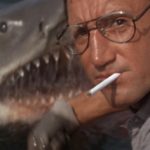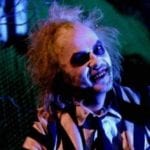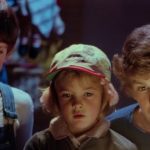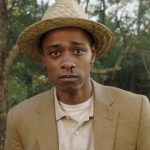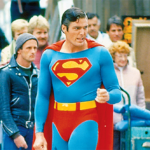 Movies and TV
Movies and TV  Movies and TV
Movies and TV  History
History 10 Wars That Sound Made Up (but Absolutely Happened)
 Movies and TV
Movies and TV 10 Movie Adaptations That Ruined Everything for Some Fans
 History
History 10 Dirty Government Secrets Revealed by Declassified Files
 Weird Stuff
Weird Stuff 10 Wacky Conspiracy Theories You Will Need to Sit Down For
 Movies and TV
Movies and TV 10 Weird Ways That TV Shows Were Censored
 Our World
Our World 10 Places with Geological Features That Shouldn’t Exist
 Crime
Crime 10 Dark Details of the “Bodies in the Barrels” Murders
 Animals
Animals The Animal Kingdom’s 10 Greatest Dance Moves
 Movies and TV
Movies and TV 10 Box Office Bombs That We Should Have Predicted in 2025
 Movies and TV
Movies and TV 10 Movie Franchises That Started Dark but Turned Surprisingly Soft
 History
History 10 Wars That Sound Made Up (but Absolutely Happened)
 Movies and TV
Movies and TV 10 Movie Adaptations That Ruined Everything for Some Fans
Who's Behind Listverse?

Jamie Frater
Head Editor
Jamie founded Listverse due to an insatiable desire to share fascinating, obscure, and bizarre facts. He has been a guest speaker on numerous national radio and television stations and is a five time published author.
More About Us History
History 10 Dirty Government Secrets Revealed by Declassified Files
 Weird Stuff
Weird Stuff 10 Wacky Conspiracy Theories You Will Need to Sit Down For
 Movies and TV
Movies and TV 10 Weird Ways That TV Shows Were Censored
 Our World
Our World 10 Places with Geological Features That Shouldn’t Exist
 Crime
Crime 10 Dark Details of the “Bodies in the Barrels” Murders
 Animals
Animals The Animal Kingdom’s 10 Greatest Dance Moves
 Movies and TV
Movies and TV 10 Box Office Bombs That We Should Have Predicted in 2025
10 Behind the Scenes Facts about Time Travel Movies
Making time travel a reality continues to evade scientists, but the concept still thrives in movies. Some time travel films have characters willingly traverse the ages through the use of a souped-up DeLorean or a futuristic phone booth. Others force their characters to stumble unwittingly into the past via hot tubs or time loops. Although, sadly, real time travel isn’t a part of the making of these films, there are still plenty of interesting behind-the-scenes stories to dive into.
Related: Top 10 Blockbuster Movie Scenes Reviewed By Real-Life Spies
10 Hot Tub Time Machine Began with the Title
Usually, movies start as an idea or a story, but in the case of Hot Tub Time Machine (2010), the title came first. In an article for Hollywood.com, writer Josh Heald explained that the seed was planted when he was talking about ’80s comedies with producer Matt Moore, who suggested that someone remake the ski comedy Hot Dog… The Movie (1983). Heald thought he said “Hot Tub” but threw the mix-up aside and began work on a new ski comedy.
Heald knew an ’80s setting would “end up going down a schlocky road,” but a present-day setting wouldn’t give the right comedy feel. “If only there was a way to set it in both times,” he writes. “Some sort of time machine. A Hot Tub Time Machine.” Heald spent the next few months writing a story to fit the title. The key, according to him, was to “allow the hot tub time machine to be ridiculous.”[1]
9 Happy Death Day’s Babyface Mask Could Have Been a Pig Mask
The creepy babyface mask worn by the assailant who repeatedly kills Tree (Jessica Rothe) in Happy Death Day (2017) was designed by Tony Gardner, who also created the iconic Ghostface mask for Scream (1996). However, it was director Christopher Landon who came up with the initial idea for the mask.
“I was expecting my first son,” Landon explains. “I don’t know if I just had babies on the brain or if I was subconsciously scared to become a father, but that baby image was floating around in my head. Tony made us a pig mask, too, but when I wore the baby mask in the office, I scared a co-worker, and we thought… yeah, this is it. This is the one.”
Jonathan Bertuccelli is suing Universal and Blumhouse over the mask, though, claiming that it rips off his design for the mascot of the New Orleans Pelicans basketball team, known as the King Cake Baby.[2]
8 Interrogation Room in 12 Monkeys Got the Filmmakers Sued
12 Monkeys (1995) sees Bruce Willis’s James Cole strapped to a seat anchored halfway up a wall and interrogated by a spherical robot. The movie’s visual style was largely inspired by the photography of Josef Sudek and the experimental architecture of Lebbeus Woods. Production designer Jeffrey Beecroft explains that no one had built anything Woods had designed “because it doesn’t stand up. So I built it! And it doesn’t make sense, but it works.”
The interrogation room is essentially a recreation of Woods’s drawing titled “Neomechanical Tower (Upper) Chamber.” When Woods found out that his art had been used without permission, he sued Universal, along with Beecroft and director Terry Gilliam.
The judge ruled in Woods’s favor, which required Universal to pull all copies of 12 Monkeys and remove the scenes, just a month after its release. However, Woods allowed Universal to continue distributing the movie in exchange for a six-figure cash settlement (the exact amount is unknown).[3]
7 Time Travel in Avengers: Endgame Written to Solve a Problem
Avengers: Infinity War (2018) left writers Christopher Markus and Stephen McFeely in a tough spot. Spoiler warning: having half of the population snapped from existence at the end of the film was a dramatic move, but they needed to figure out how to have the heroes win in Avengers: Endgame (2019). Markus recalls they were “sitting in a room trying to figure out how the hell to get out of the corner we wrote ourselves in[to].”
Eventually, they ended up turning to time travel. While they thought “it’s the stupidest idea you could possibly have,” they then realized “that the Ant-Man franchise, which we hadn’t dealt with yet, had legitimately, if you believe the science, the seeds of a time machine.”
The explanation Bruce Banner (Mark Ruffalo) gives for time travel in the movie is, according to Markus, “essentially what we were told by genuine quantum physicists brought into the writers’ room to explain time travel to us.”[4]
6 Edge of Tomorrow ExoSuits Led to Actors Hanging from Chains
The time loop movie Edge of Tomorrow (2014) sees the use of armored exoskeletons, called ExoSuits, to fight off an alien invasion. Director Doug Liman tasked prop maker Pierre Bohanna, production designer Oliver Scholl, and costume designer Kate Hawley with making the ExoSuits look as real as possible, which also meant they were very heavy.
Most of the suits weighed around 85 pounds (38.5 kg), but extra equipment could increase that number up to 176 pounds (79.8 kg). They were so heavy that during breaks in filming, chain rigs—that, according to Emily Blunt, looked “like a kid’s swing set”—were used to hang the actors up to take the weight off.[5]
5 Terminator 2’s Special Effects Cost More Than Double the First Film’s Entire Budget
The Terminator (1984) cost $6.4 million to make, and for Terminator 2 (1991) the special effects budget alone cost more than double that, clocking in at around $15-$17 million. The whole film cost $94–102 million, making it the most expensive movie ever made at the time. Much of the effects budget went to the liquid metal CGI form of the T-1000 (Robert Patrick).
Writer and director James Cameron wanted to include the T-1000 in the original movie, but the technology wasn’t up to scratch (nor was the budget). But he knew it was possible after working with ILM for the water alien in The Abyss (1989).
Cameron told ILM that he wanted to do something similar but that it would be “metallic, so you didn’t have the translucency issues.” Although he did admit that there would be “surface reflectivity issues.” The Abyss hadn’t performed as desired, and Tom Sherak, who ran distribution for Fox, griped, “Who would have known that we made a $60 million movie that was just a test run for Terminator 2?”
Forty-two CGI shots were created for T2, but while it’s known for these innovative effects, there were actually far more practical effects used. For instance, the frozen T-1000 shot and shattered by Arnold Schwarzenegger’s T-800 was a model created by Stan Winston.[6]
4 Sean Connery Wasn’t Supposed to Be in Time Bandits
When Monty Python members Terry Gilliam and Michael Palin were writing Time Bandits (1981), they wanted Agamemnon to be played by a famous actor as a surprise. They knew Sean Connery would be perfect but thought they’d never get him in their small movie. So, in the script, they jokingly wrote, “He reveals himself to be none other than Sean Connery or an actor of equal or cheaper stature.” But it turned out Connery was a Python fan and took the part.
Connery proved to be a boon when making the film. Gilliam hadn’t shot a movie in a few years and was floundering on day one when Connery stepped in and told him what shots to get. “He literally saved my ass,” Gilliam recalls.
Connery also made the ending of the film extra special. He wanted to play the fireman at the end and was in England for one day to meet with his accountant. “I managed to get him to come out the middle of nowhere to just put on a fireman’s helmet, wink, get in the truck, and go,” Gilliam says. “And it ended up this brilliant ending that wouldn’t have been there if it hadn’t been for Sean and his tax problems.”[7]
3 Replacing Crispin Glover in Back to the Future Part II Led to a Lawsuit
Crispin Glover refused to reprise his role as George McFly in Back to the Future Part II (1989) for two reasons. One issue was that Glover was offered less than half of what Lea Thompson and Tom Wilson, who had similar-sized roles, were being paid. Then there was the fact that he disliked the first movie ending with the McFlys becoming rich because, in his words, “it basically makes the moral of the movie that money equals happiness.”
Director Robert Zemeckis and writer Bob Gale came up with an inventive way to replace Glover. They took molds of his face that were created for the old age make-up from the first movie and made prosthetics to attach to replacement actor Jeffrey Weissman. They also used camera angles to obscure his face. However, according to Thompson, George hanging upside down from a futuristic contraption was intended as punishment for Glover “because they were so mad at him for not hitting his marks” in the first movie.
Glover filed a lawsuit against Universal for using his likeness without permission. Universal decided to settle (reportedly for $760,000), and the case helped lead to tighter regulations to prevent filmmakers from mimicking actors.[8]
2 Groundhog Day Originally Featured a Twist Ending
In screenwriter Danny Rubin’s first draft of Groundhog Day (1993), the story was going to begin in the middle and end with a twist. The audience would see Phil (Bill Murray) go through his day knowing everything that was going to happen, and then a voiceover from Phil would reveal that he is trapped in a time loop. But when director Harold Ramis was doing rewrites, development executive Whitney White pointed out that “most of the audience will feel cheated if they don’t see his reaction to the onset of the time warp.”
The filmed ending has Phil wake up next to Rita (Andie MacDowell) to show that his time loop is broken. Rubin explains that in his original script, “A second later, Rita is out of there. She can’t wait to leave. And it turns out that she’s been reliving February 3 over and over again.” This would be paired with “a Rita voiceover. So the movie actually switches point of view from his voiceover to hers.”[9]
1 Actors Believed a Character Switch in Bill and Ted’s Excellent Adventure
It’s hard to imagine anyone other than Alex Winter as Bill S. Preston, Esquire, and Keanu Reeves as “Ted” Theodore Logan. However, the actors initially thought they were playing the opposite parts in Bill and Ted’s Excellent Adventure (1989). In 2013, an interviewer mistakenly thought that Reeves played Bill. After hilariously responding, “You just lost all of your cred, dude,” the actor revealed that he once thought he was playing Bill. “Alex and I both, once we heard that we got the roles, thought we were playing the other guy’s role,” he said. They only found out about the mix-up once they showed up at wardrobe fittings.
It’s understandable that Winter and Reeves would be confused about which characters they were playing, given the fact that their chemistry in the waiting room led to them pairing up and then auditioning together to read for both parts.[10]

